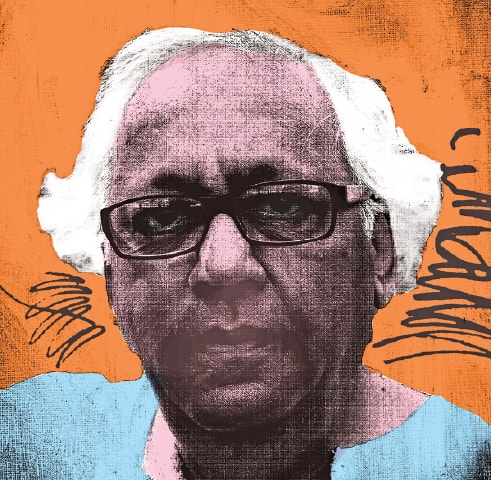On a recent visit to Istanbul, I had some doner kebab that transported me back to my student days in Ankara many, many years ago. Mostly, what passes for doner kebab in other countries is bland and dry, and tastes of very little. But Uludag (the ‘g’ is silent’) doner, named after a mountain in southern Turkey, is special. In Ankara in the ’60s, a group of the tiny Pakistani community would go to the Uludag Kebab restaurant and devour large helpings of perfectly cooked meat laid on a bed of flat bread, with a yoghurt-based sauce poured on top. Despite returning to Turkey many times since then, I never found a doner kebab joint that matched the Ankara establishment.
Most readers will have seen a doner kebab being cooked. The process is fairly simple: a number of slices of lamb are stacked on a metal skewer until a three-foot cylinder is achieved. The meat is then rotated near a heat source, and slices are sheared off as soon as they are grilled. These are then placed on a bed of pide (pronounced ‘piday’), and served with grilled tomatoes, with yoghurt on the side.
At the Uludag Doner Kebab restaurant in Bostanci on the Asian side of Istanbul, the liberal use of butter is what sets their version apart. The pide is firm and chewy, and very different from the white, soft version most restaurants serve. On top goes a generous layer of grilled, sliced lamb. Over the dish, a waiter will pour tomato paste, thinned with a little hot water and melted butter. Finally, a lashing of more bubbling butter is poured from a copper container. A dollop of yoghurt is on the side. This is a dish the gods would be pleased with. It was so good that I dragged my hostess back for another meal there, despite the fact that she lives nearby, and had probably eaten there a number of times.
Though few restaurants now prepare classical dishes from the Ottoman period, Turkish cuisine remains one of the most diverse in the world
I’m sure the secret lies in the quality of the meat. Sheep from the Uludag region eat grass on the hills, and lead contented lives until they take that final walk to the abattoir. The butter, too, has a flavour very different from the anodyne stuff we are used to. The same goes for the tomatoes.

I’m not big on dessert, but the baklava we bought from my friend’s favourite shop was the best I have ever had. The versions I have tried in Karachi, London and New York have been pale imitations of the real thing which are moist and imbued with the flavour of pistachios, honey and other nuts, depending on your selection.
On the Bosporus, there are a number of excellent seafood restaurants that serve a wide range of fish. Lunch is a feast for the eyes as you watch the ferries, cargo ships and yachts traverse these historic waters. Deep-fried mussels on skewers are a favourite.

Aubergine occupies centre stage in Turkish cuisine when it comes to vegetables. Imam biyaldi — literally ‘the imam fainted’ (with pleasure, presumably) — is stuffed aubergine cooked in olive oil. Another version of the name’s history is that the imam fainted when he learned how much oil was used in cooking his favourite dish.

Ottoman Turkey attracted chefs and recipes from across their vast empire that stretched from East Europe to North Africa and the Middle East. Now, sadly, few restaurants take the time and trouble to prepare these classical dishes. But nevertheless, Turkish cuisine is one of the most diverse in the world. However, most dishes are not very complex in their spicing, relying more on the quality of the ingredients to achieve its exalted position.
Published in Dawn, EOS, May 5th, 2019















































